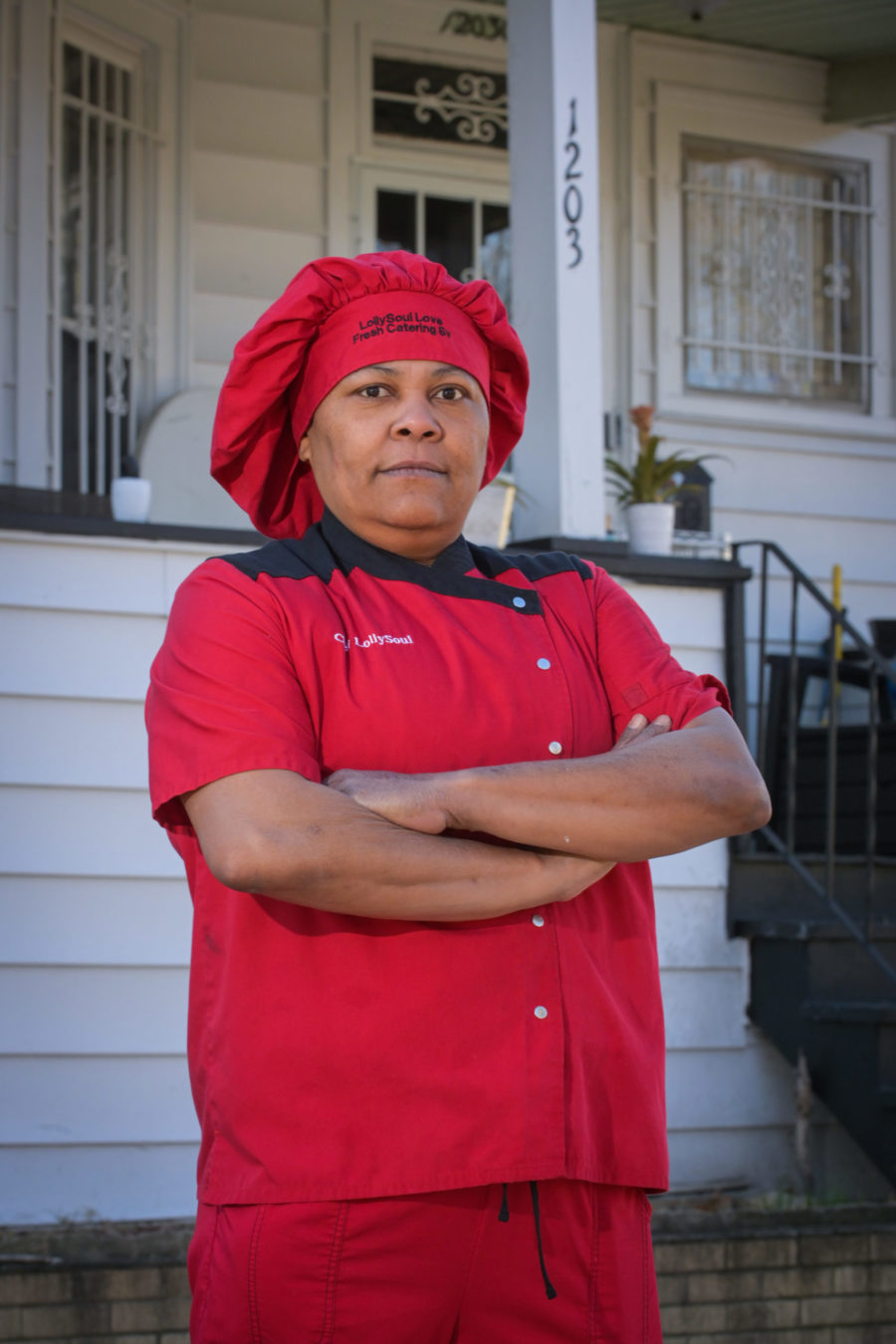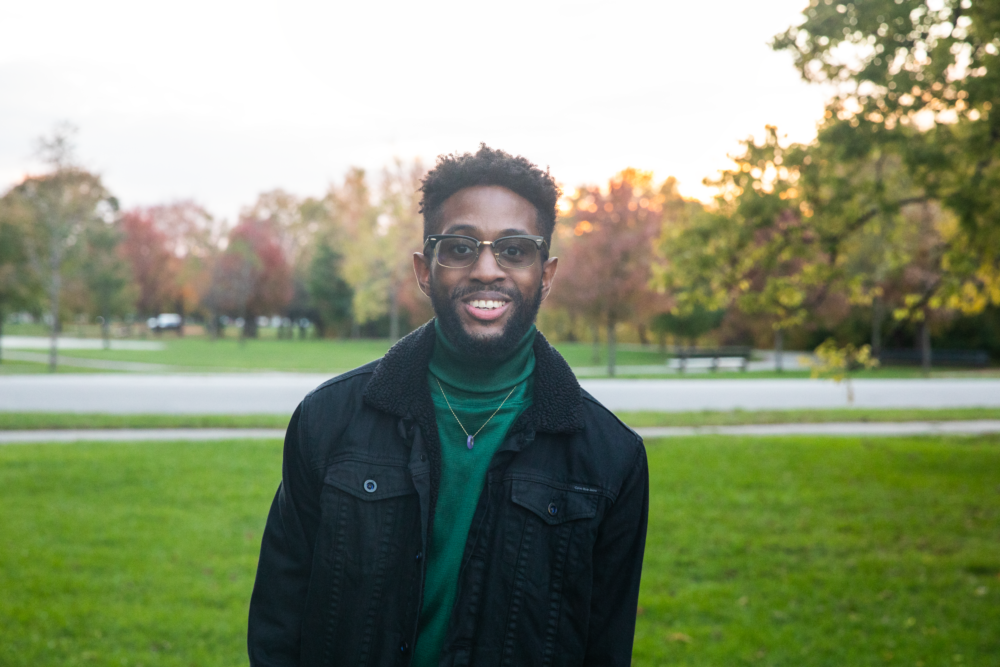Photo: Courtney Jones, a Real Estate Broker who uses tools of the trade to spread the wealth. Photo by Davon Clark
WTTW Chicago debuts its new initiative, FIRSTHAND: SEGREGATION on February 22 at wttw.com/firsthand. From Chinatown to Jackson Park, Evanston to Park Ridge, this special illustrates how continued racial divisions take a toll on people, impact the city, and compel change. FIRSTHAND: SEGREGATION is a year-long initiative that will also include news specials, community conversations, and expert video talks.

The series highlights individuals and families from every lifestyle as they navigate through gentrification, violence, economic disinvestment, and housing insecurity. Race relations and racial healing is also addressed in the series. Martin Luther King Jr. once called Chicago one of the most segregated cities in the nation. The saying rings true today.
“Segregation insinuates itself into just about every aspect of our lives in Chicago, including our housing, education, healthcare, and economy,” said executive producer Dan Protess. “This project unpacks how these divisions are taking a toll on Chicago through the firsthand perspectives of its residents, and by spotlighting the many ways in which Chicagoans are seeking to disrupt segregation.”
The impact of segregation is wide-reaching affecting every aspect of Chicagoans’ lives. Skyrocketing rental rates and home prices combined with rising inflation force many residents into neighborhoods with fewer resources and more violence. The issue of segregation goes beyond race. FIRSTHAND: SEGREGATION explores the subject beyond race, extending into education, wealth building, homeownership, education, and more.

The fiscal impact of segregation is massive. The Metropolitan Planning Council found that segregation costs the region $4.4 billion in lost income, 83,000 fewer bachelor’s degrees and about 200 lives cut short by homicides every year. Throughout the year, WTTW’s FIRSTHAND: SEGREGATION initiative will put a human face on the impact racial divisions have on individuals, the city, and the region.
Executive Producer, Dan Protess says it is not just only racial segregation but a segregation of resources that continues to keep the city divided both racially and economically.
In addition to the series following 15 Chicagoans, WTTW’s FIRSTHAND: SEGREGATION initiative will also include expert talks on race relations and violence by community leaders, continuing coverage exploring the history of segregation in Chicago, and impactful conversations with community and thought leaders. The initiative also will include a companion discussion guide for schools, libraries, and community organizations written by UIC Sociology professor, Maria Krysan, Ph.D.
“As a public media organization, it’s our responsibility to respond to the issues that matter most to the people and communities in our city and region with trusted, essential content,” said Sandra Cordova Micek, President, and CEO of WTTW. “Through personal stories and experiences, FIRSTHAND: SEGREGATION will provide an up-close view of an issue in our society and culture that has plagued Chicago for decades.”
Dan Protess, says he hopes the series and initiative encourage viewers to talk about solutions. He highlighted the stories of Rachel Toft and Father Larry Downing who find solutions to address the lack of resources in their communities, promote racial healing and heal their communities. “Hopefully, people will take inspiration from some of these stories and get a sense of the small steps that they can take in their own communities,” Dan Protess explained.
In conjunction with the series premiere, WTTW is hosting a special Q&A, on Feb. 22 at 6 pm, with highlights from the documentary with the Metropolitan Planning Council and the Folded Map project. The event is free, but RSVP is required. To register for the event, click here.
